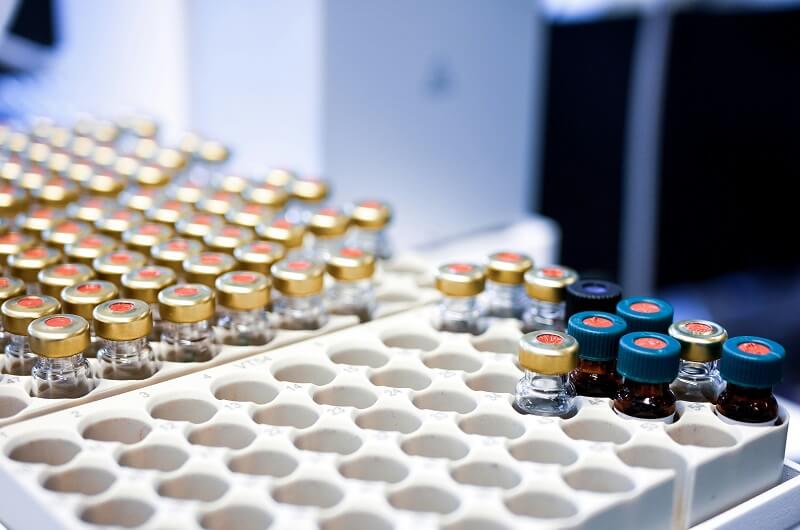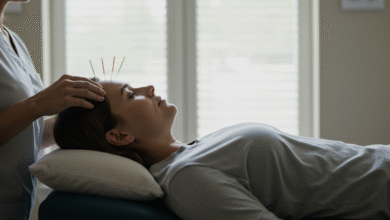Penis Sensitivity: How Should It Be Handled?

Penis sensitivity is a natural and vital part of male sexual health. It plays a central role in sexual pleasure for use Malegra 100 mg, arousal, and orgasm. However, for some men, sensitivity levels can become problematic. Too much sensitivity may lead to premature ejaculation or discomfort, while too little can reduce pleasure and make it difficult to climax. Both scenarios can affect confidence, relationships, and overall well-being.
Handling penis sensitivity properly requires understanding what causes it, identifying whether it’s too high or too low, and knowing the right strategies to manage it.
Why Penis Sensitivity Is Important
The penis contains thousands of nerve endings, especially in the glans (head). These nerve endings are responsible for transmitting pleasurable sensations during sexual activity. When sensitivity is balanced, it allows men to enjoy intimacy fully.
However, disruptions in sensitivity can create two common issues:
-
Increased sensitivity: Leads to overstimulation, discomfort, or premature ejaculation.
-
Decreased sensitivity: Reduces arousal, prolongs climax, or may prevent orgasm altogether.
Both situations can cause frustration, anxiety, and stress, making it essential to address sensitivity challenges instead of ignoring them.
Common Causes of Altered Sensitivity
1. Medical Conditions
Conditions such as diabetes, peripheral neuropathy, and multiple sclerosis can damage nerves and reduce penile sensation. Similarly, poor circulation caused by cardiovascular issues may limit blood flow, decreasing sensitivity.
2. Aging
As men age, natural changes in nerve response and hormone levels can lead to reduced penile sensitivity. This often occurs gradually and may be accompanied by slower arousal or delayed ejaculation.
3. Skin and Foreskin Issues
-
Phimosis (tight foreskin) or balanitis (inflammation of the glans) may increase sensitivity.
-
Men who are circumcised sometimes report altered sensitivity due to changes in nerve exposure.
4. Psychological Factors
Stress, performance anxiety, and mental distractions can exaggerate sensitivity or dull pleasure. Emotional health strongly influences sexual experiences.
5. Lifestyle Choices
Excessive alcohol, smoking, poor diet, and drug use can damage nerves and blood vessels, directly impacting sensitivity.
6. Injury or Surgery
Pelvic injuries, nerve trauma, or surgeries in the genital area may lead to changes in sensation.
Managing Increased Sensitivity
Men with overly sensitive penises often struggle with premature ejaculation or discomfort. Here are ways to handle it:
1. Condom Use
Condoms naturally reduce sensitivity by acting as a barrier. Thicker or desensitizing condoms can help prolong intercourse.
2. Desensitizing Creams and Sprays
Topical anesthetics containing lidocaine or benzocaine can reduce overstimulation when applied before sex.
3. Behavioral Techniques
-
Start-stop technique: Pause stimulation when nearing climax, then resume after regaining control.
-
Squeeze technique: Applying gentle pressure to the penis head before ejaculation to reduce arousal.
4. Pelvic Floor Exercises
Strengthening pelvic muscles through Kegels can improve ejaculatory control and help regulate sensitivity.
5. Relaxation and Mindfulness
Anxiety increases overstimulation. Practicing deep breathing, mindfulness, or focusing on the partner rather than performance can reduce hypersensitivity.
Managing Decreased Sensitivity
Low penile sensitivity may make arousal and orgasm difficult. Fortunately, strategies can improve sensation:
1. Lifestyle Modifications
-
Exercise regularly to improve circulation.
-
Adopt a nutrient-rich diet to support nerve function.
-
Quit smoking and limit alcohol to restore vascular health.
2. Use of Lubricants and Stimulation Tools
Lubricants enhance friction and sensation, while vibrating devices or textured stimulators can increase arousal.
3. Address Underlying Health Conditions
Managing diabetes, high blood pressure, or hormonal imbalances often restores sensitivity.
4. Testosterone Support
Low testosterone may reduce libido and sensitivity. A healthcare provider can test hormone levels and suggest treatment if necessary.
5. Mental and Emotional Support
Sometimes, reduced sensitivity is linked to psychological stress. Counseling or sex therapy may help address emotional barriers to arousal.
When to Seek Medical Help
Occasional changes in penis sensitivity are normal, but persistent issues may signal an underlying problem. Men should consult a healthcare professional if they experience:
-
Continuous pain, burning, or numbness
-
Sudden loss of sensation after illness or injury
-
Difficulty reaching orgasm despite arousal
-
Prolonged or distressing premature ejaculation
-
Emotional strain due to sensitivity changes
Doctors may recommend tests to evaluate nerve function, hormone levels, or blood circulation. Treatment options could include medication, physical therapy, or counseling, depending on the cause.
Preventive Measures for Healthy Sensitivity
-
Maintain a balanced lifestyle: Regular exercise, a nutritious diet, and stress management keep nerves and blood vessels healthy.
-
Practice good hygiene: Proper cleaning prevents infections that may affect penile health.
-
Limit harmful substances: Reducing alcohol, tobacco, and drug use preserves nerve function.
-
Use protection: Safe sex reduces risks of sexually transmitted infections that may harm sensitivity.
-
Communicate with partners: Honest conversations about needs and experiences reduce anxiety and improve intimacy.
Conclusion
Penis sensitivity is a delicate balance that significantly affects male sexual health. Too much sensitivity may lead to premature ejaculation, while too little can reduce pleasure and delay orgasm. Causes range from medical conditions and aging to psychological stress and lifestyle factors.
The good news is that sensitivity issues are manageable. Men experiencing heightened sensitivity can benefit from condoms, desensitizing products, and relaxation techniques. Those with reduced sensitivity may improve outcomes with lifestyle changes, enhanced stimulation, or medical care.
Ultimately, addressing penis sensitivity requires a mix of self-care, open communication, and professional guidance. By taking proactive steps, men can enjoy satisfying intimacy, maintain confidence, and protect long-term sexual health.








